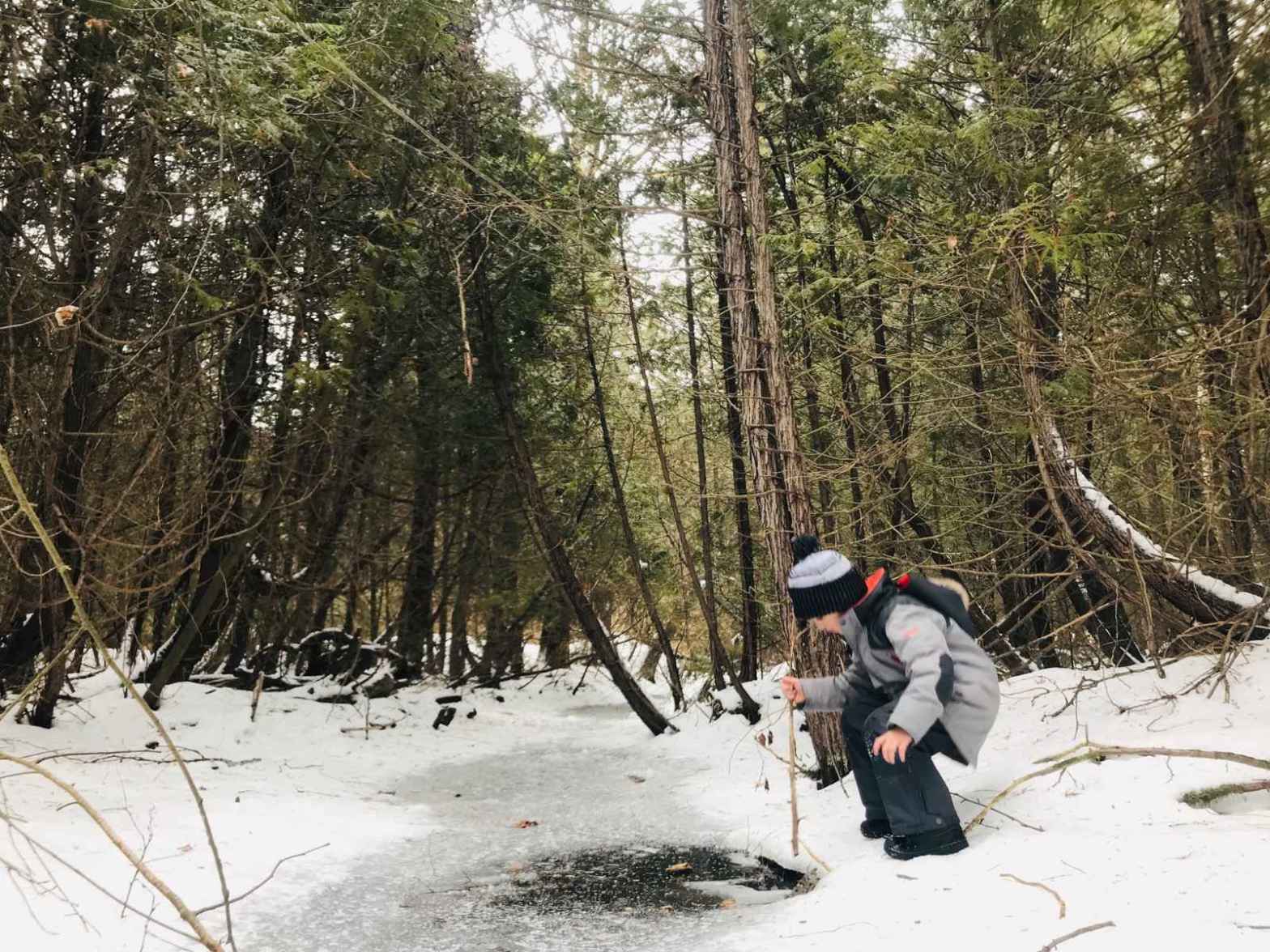Back in University, I enjoyed my studies in the sciences and I continue to read and watch documentaries in this field. But one learns so much more by being and doing in the outdoors where the holistic teaching never stops. It is quiet and subtle. It embraces you and doesn’t expect anything of you except to fall into sync with what is. It is the place where “failure” is a reminder that problems are associated with disconnection.
When I was a student in elementary school, it was not unusual for my teachers to single me out for not giving my full attention to the important lesson being taught. My attention was often diverted to the world outside the windows as I watched the tree branches sway gently in the wind, clouds drift across the blue sky, or birds fly by with seemingly no care in the world. I wasn’t a good classroom student, but I couldn’t have been the only one who thought the outside world more appealing than the inside educational setting.
Years later, I visited a school that had been built with only one tiny window in each classroom. The reason for this was to discourage children from letting their attention drift away from the lessons to be learned. I was an outdoor educator at the time and wondered how a child could ever learn effectively in a closed space with only a tiny window to the world.
Long ago, children learned from all members of their community in the natural setting. Here they were connected to all living things and saw significance in every part of Nature. The plants and animals were respected as brothers and sisters. Elders ensured that knowledge was passed on to new generations who then built on that knowledge and likewise passed it on to their descendants.
With the rise of civilization, disconnection from Nature resulted in exploitation of resources and environmental damage. Aboriginal people across the world who lived in close connection with Nature were displaced by the so-called “civilized” people who saw it as their duty to force the “primitive” out of them. Children got their formal education in schools. They learned that Nature was to be dissected, studied, and managed.
Human arrogance and disconnection from the natural world have wreaked havoc over the past few thousand years. With the growing instability of natural systems and serious loss of biodiversity, we are beginning to understand that we have collectively reached our limit. Our very survival as a species is now at stake.
When I look into the eyes of a newborn, I sense an openness. Within a year, this seemingly helpless being has learned an astonishing amount about their new surroundings and their own abilities to interact with it. At that point in their life, they take it all in with wonder and enthusiasm. If we could see the natural environment with the same openness, without judgement or preconceived notions about what it should be like, humanity’s future on this planet would be far more secure.

I watch my two-year-old grandson as he runs back and forth on the pathway through the meadow in late fall, totally absorbed by the spent vegetation on either side, perhaps remembering it as green and colourful not so long ago. Now, it’s all dead flower stalks, brown and grey seed heads, dead leaves and blades of grass. He brings me a dead leaf he’s picked as if to invite me to look closely at the fascinating shape and texture. Then, he looks to the side to make sure his shadow is still with him, and checks to make sure I’m following as well. When I go to show him something, he runs off as if to say, “Don’t tell me. It is for me to discover at my own pace. I’m not interested in learning from your perspective.”
And so I realize that the little child is my teacher. I am being trained to quietly follow and observe. When he senses that I want to impose my will on him, he literally pushes me in the opposite direction. He is open to suggestion but not direction.
It’s time to listen to the children. Clearly, we have been getting it all wrong. In society’s quest for increased knowledge and technological advancement, we are focused on learning for the purpose of manipulating natural processes and forces to suit our own goals. We lack in openness and wisdom. We are tuned out of the truly important things in life and are blind to the interconnectedness of everything.
The little children can lead us back to a place of awareness and presence. With awareness comes the insight that can help us restore our harmonious existence within the whole.



Food for thought for sure
LikeLike
Beautiful!♡ I love it! Thank you for your inspiration. Merry Christmas and Best Wishes!
In Switzerland, schools are mandatory to have large windows for viewing and the natural sunlight. ♡
LikeLike
Thanks, Monika. All the best to you and your family
LikeLike